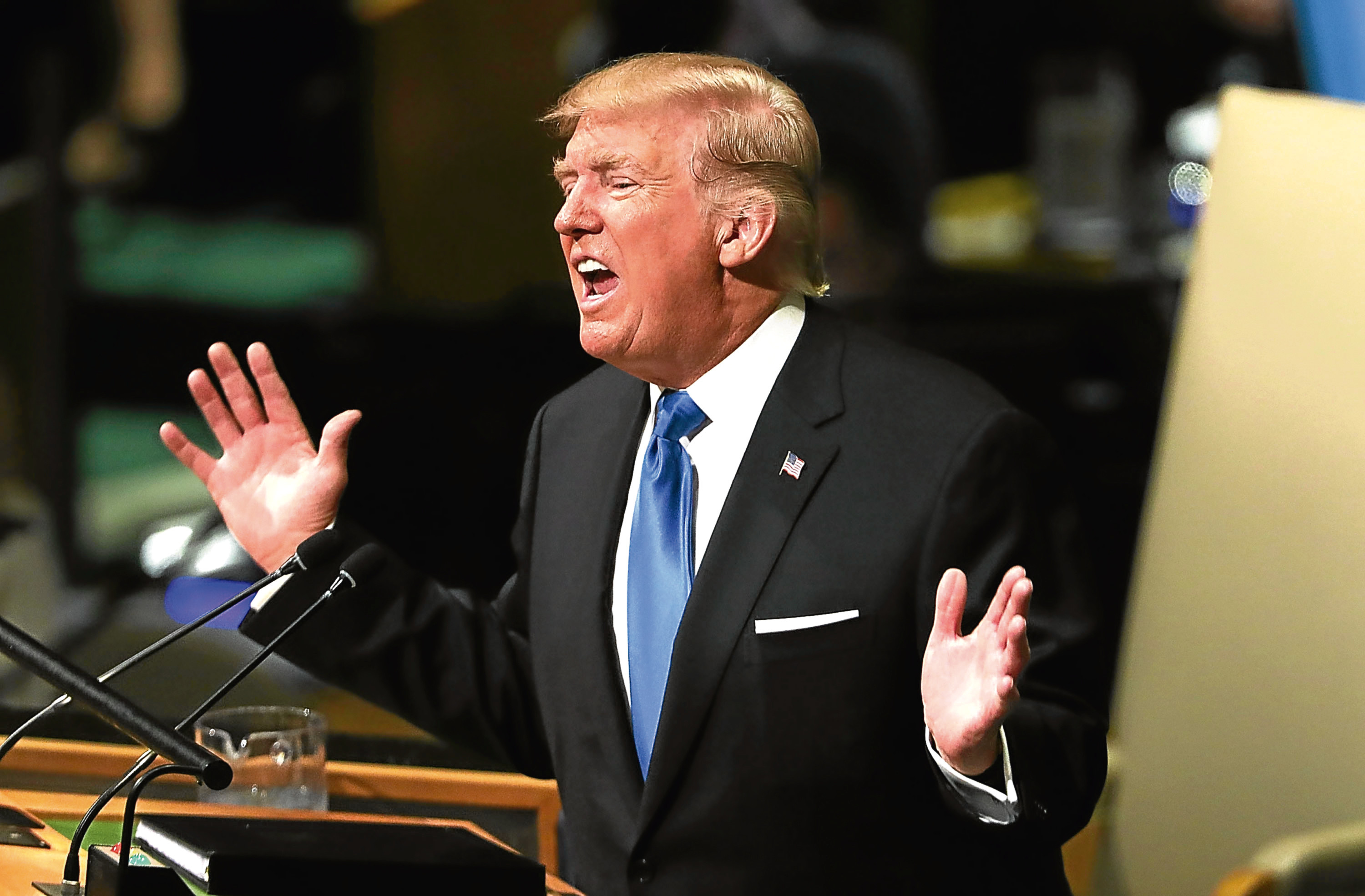What to write about – the banality of Boris Johnson, Donald Trump’s speech to the United Nations or the claims over Brexit?
The question that holds my fingers above the keyboard is: would I just be adding to the noise? You know the noise – the thunder of disaster, catastrophe and chaotic politics.
It’s as if we are being driven mad by the noise of events and never offered a cure in the form of action. The noise starts on the radio with Radio Four’s Today programme. It’s long been accepted that Today “sets the agenda” and is a necessary listen for journalists and serious people.
This no longer feels true. The mission to explain news has been overrun by the ambition to make news and it’s exhausting for the listener.
President Trump’s speech was full of such bombast, threatening to “totally destroy” North Korea while rambling away on tirades about “rogue states”.
Typical of modern noise, we have almost no way of analysing the speech, as it doesn’t sit in the tradition of seriousness, of combining experience and knowledge with prudent judgement, which has underpinned democratic states.
Without the assumption that the US President is reading what we are reading, relying on the same academic research, working from the same principles, there is no basis on which to analyse the man’s actions. That’s not the same as saying he is mad and disconnected – I don’t think he is – just that his storm of words may mean nothing or everything. Experts and journalists can only guess at what it means. If I guess, am I helping you, the reader, or just adding to the noise?
So too on Boris Johnson’s efforts to unseat Theresa May. We know as a matter of public record that Boris is not a good MP, mayor or Foreign Secretary and that he harbours desperate ambition to become Prime Minister.
In trawling over his appalling record and nasty deeds one more time, are you enlightened or do you recoil from the noise of my genuine anger that such a fraud can last so long in public life?
Not so long ago such gloomy noise was blamed on the news media – people would often say if only newspapers printed happy stories, then society would be better. That idea was blown apart with the invention of social media, which gave every citizen a media presence, and it turned out many of us were inordinately satisfied with our angry opinions, such that we felt it important for everyone to hear them.
This is not a news media world but a social media one and the leaders we have seem to echo the banality and volume of online debate.
Donald Trump’s speech to the United Nations – bizarre and unhinged so par for the course – was part of a week of discussion at the UN about its purpose; 2017 is supposed to be the year that the UN focuses on the people – if that sounds odd, it is. Our only global government is trying to reconnect with humans. Perhaps that should be taken as an honest and positive thing – a recognition that the processes of government and politics have lost sight of their purpose.
The Today programme reflected this with a discussion between veteran foreign correspondent Lyse Doucet and Sir Stephen O’Brien, who has stepped down from his role as Under Secretary General for Humanitarian Affairs and Emergency Relief at the UN.
What emerged from the noise were Sir Stephen’s last words to the UN Security Council. He looked at the people at the table and said: “I survey this famous horseshoe, and these people (the victims of manmade disasters) deserve no less a life than you people sitting around this table.”
Which is true. The paradox of this awful noise – designed to make us turn away from how our fates are governed – is that we must never switch off. It is our humane duty to listen to the screeching and parse the interference from the truth. Because if we become deaf to the details, we become blind to the fate of millions who are innocently caught up in civil wars and ethnic cleansing. We must keep listening because it is the only way we can keep check on the fools who would benefit from our silence.
